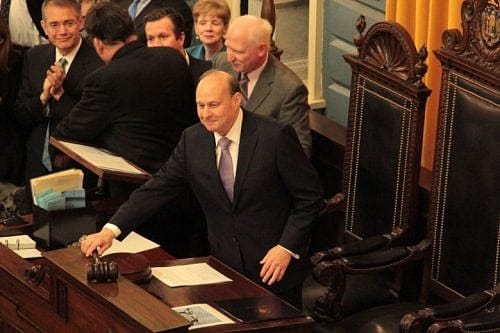Rosenberg tips hand on ‘millionaire tax’ strategy

BOSTON — Senate President Stanley Rosenberg on Monday described to a breakfast crowd of union leaders his vision of how the Senate's work on education, transportation and housing issues is laying the groundwork for a debate over adding a "millionaire tax" to the state constitution.
In discussing a proposed ballot measure to authorize the amendment, which would change the state's flat income-tax structure to add a 4 percent surtax on those taxpayers who earn more than $1 million in a year, the Amherst Democrat provided insights into the proponents' strategy to win voter approval for the tax hike — something the Bay State electorate has steadfastly refused to provide in five out of five attempts in recent years.

